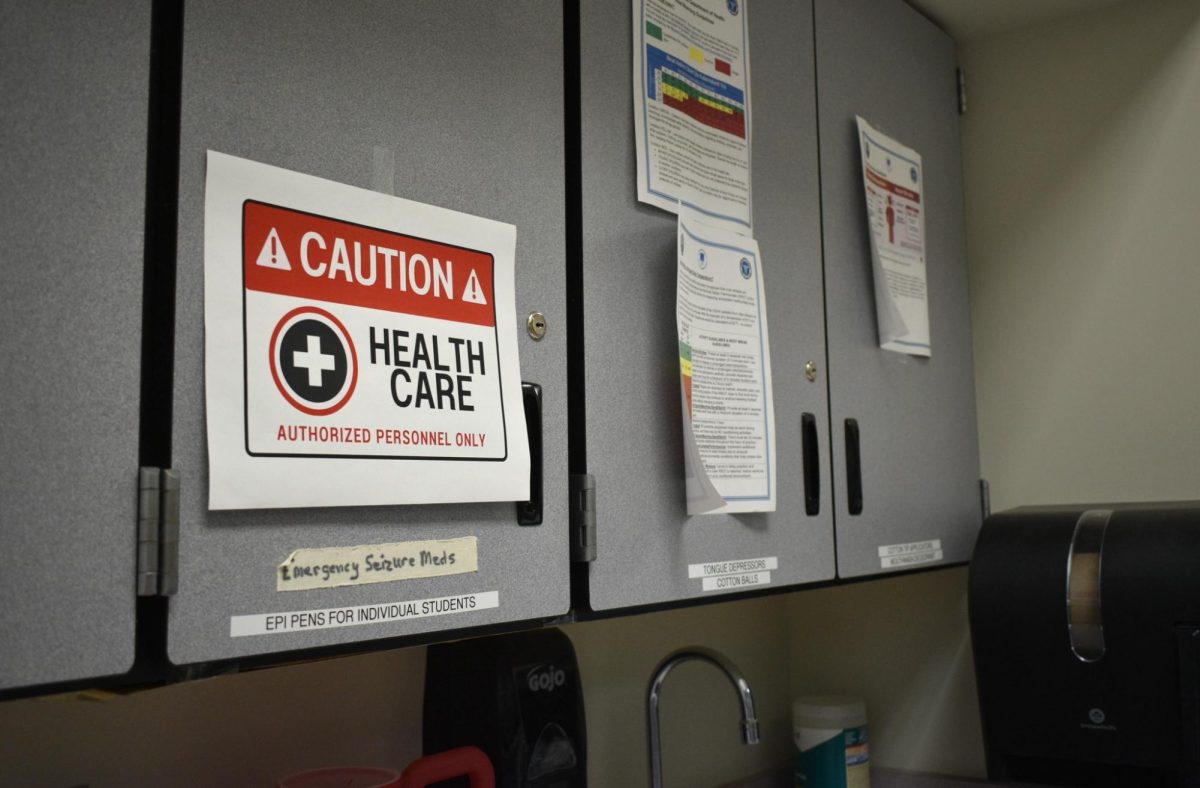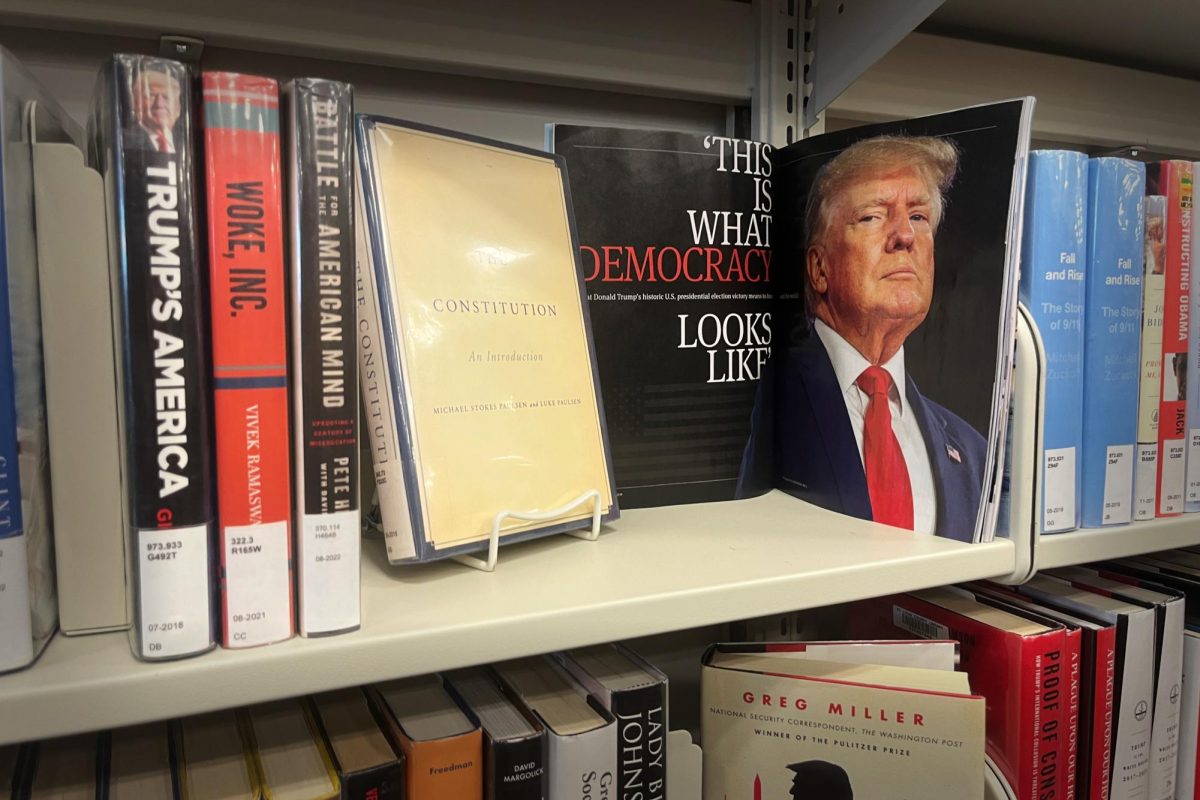Health first — a phrase commonly integrated throughout schools, communities and even society as a whole. It serves as a constant reminder that wellness far outweighs other obligations: deadlines, plans, responsibilities. But what happens when our country places collective health on a back burner?
Though standards of well-being have never been unfounded, they have become a pawn in the game politicians play every day. From the controversy surrounding vaccinations to the removal of unconditional federal aid, it is especially pertinent to our current political situation to take note of actions, disputes and incidents of government involvement in the health of their citizens. To best understand just how infectious politics has become in these medicinal parts of life, there are three vital components to assess in the state of U.S. policy: medical care, insurance and crisis aid.
Medical care
What must first be established is that access to healthcare is a fundamental human right that, per the World Health Organization, includes “the right to control one’s health and body (for example, sexual and reproductive rights) and to be free from interference.”
Despite this, following the 2021 Supreme Court ruling on Dobbs V Jackson, 41 out of 50 states have some sort of restriction imposed on terminating pregnancies. These restrictions have led people like Georgia mother Amber Thurman to lose their lives from the denial of a life-saving procedure.
Regardless of one’s personal opinion or stance on the procedures, these are medical operations that give people one more shot at life — so why have we let the waters remain this murky? Why have we allowed all of the fighting to blind us from the core of the issue? Why do we let politics take precedence?
This isn’t solely an issue within abortions, either; gender-affirming care, IVF (a procedure to help couples conceive children) and even vaccines all stand on shaky ground.
“As someone interested in the mix of medicine and policy, I think the correlation is pretty significant and it shouldn’t always be like that. There are a lot of things making headlines now that take me aback because I didn’t know there was a way to disagree with that,” junior Ryan Shabani said.
Insurance
Beyond just medical care, the ways in which annual checkups and emergency room visits are financed also bring about its own wave of conflict. In 2010, under former President Obama, the Affordable Care Act, oftentimes referred to as Obamacare, was passed and integrated into society. Despite reports of objectively positive results emerging from the bill, according to the National Institute of Health, a near majority disagree with the principle of the government dictating medical insurance.
If more people dislike the act than do, our government should take that as its sign to take action to either come up with a new plan or abandon past efforts rather than continuing to employ health policy as a platform for their campaigns, speeches and debates. Simply talking about creating change, without actually considering the people’s wishes, goes to show how this issue transcends party lines: it’s about giving citizens power in a government that’s supposed to revolve around them.
Now, the situation with insurance itself is two-fold. First, it’s the aforementioned governmental interference, and second, the exponential growth of Big Pharma. The CEOs of pharmaceutical industries are notorious for utilizing their wealth to influence democracy simply to reap the benefits and expand their own wealth. In the 2024 election, these executives were very active within Political Action Committees (PACs) and their efforts paid off as they’ve continued to grow their net worth like no tomorrow.
However, that growth comes at the expense of others. Big Pharma has thus far led to a reality where “insured people with chronic medical conditions in need of care will frequently delay or avoid accessing care” and fewer and fewer necessary medications are being covered by providers. All in all, legal loopholes are being created and abused left and right, and it’s the average citizen that’s paying the brunt of it.
Domestic Crisis Aid
Unconditional disaster relief has been a touchy subject for Americans following the controversial involvement of the Federal Emergency Management Agency (FEMA) in recuperating from Hurricane Katrina in 2005. These types of aid are for food, water, shelter and medical care — yet involvement of any kind elicits a range of emotions. Some are angry that their tax money is going to be used elsewhere; others argue that current efforts aren’t enough. The back and forth has gone on for so long that action post-disaster from the government can be predicted by the party of the incumbent in office. For example, as of Jan. 28, President Trump made relief to Los Angeles, Calif. conditional on their support of his presidency — a clear power-grab during times of urgency and panic.
Globally, providing assistance is seen as taking a side too. Thinking back to just last year, during the peak of the Israel-Hamas conflict, The United Nations Relief and Works Agency for Palestine Refugees (UNRWA) was temporarily shut down due to outrage over aid for Palestinians, and as of Jan. 31, there are currently reports of another forced halt beginning again soon.
“I don’t think health, sickness or death should ever be controversial things — during conflict, too, there should be standards of wellness that are being met regardless of how tense the situation is,” sophomore Malia McLellan said. “Looking at the controversy of aid globally, it seems like the U.S. isn’t the only place with this problem: that’s a good thing for us, but it also means more overall work to be done everywhere.”
Our health, especially in moments out of our control, can no longer be just another responsibility to policymakers, as it means everything to us. It’s time to separate political opinions from the facts and strive to achieve a tomorrow in which health — in all senses — remains a steadfast force, for and by the people.


![Leaning on the podium, superintendent Melissa Schneider speaks to Parkway journalism students during a press conference. Schneider joined Parkway in July after working in the Thompson School District in Colorado. “My plan [to bond with students] is to get things on my calendar as much as possible. For example, being in [classes] is very special to me. I am trying to be opportunistic [meeting] kids [and] being in [the school] buildings. I have all the sports schedules and the fine arts schedules on my calendar, so that when I'm available, I can get to them,” Schneider said.](https://pwestpathfinder.com/wp-content/uploads/2025/09/IMG_5425-1200x943.jpeg)


![Red, white and blue, the American flag holds the values of our democracy. The fight that we once endured has returned, as student journalists and senior correspondents across the country are losing their voices due to government control. “[Are] the White House and [the] government limiting free speech [and] freedom of the press? Yes [they are],” chief communications officer of the Parkway School District and former journalist Elisa Tomich said.](https://pwestpathfinder.com/wp-content/uploads/2025/03/Untitled-design-14.jpg)
![A board in the Parkway West counseling department displays pennants of selective universities. With a wide range of students interested in attending, it’s important that these schools have clear priorities when deciding who to admit. “[Washington University] had the major that I wanted, psychology, philosophy, neuroscience. That's a holistic study of the brain, and [WashU is] the only college in the world that offers that. That's the main reason I wanted to go; I got into that program,” senior Dima Layth said.](https://pwestpathfinder.com/wp-content/uploads/2025/02/Flag-1.png)
![Within the U.S., the busiest shopping period of the year is Cyber Week, the time from Thanksgiving through Black Friday and Cyber Monday. This year, shoppers spent $13.3 billion on Cyber Monday, which is a 7.3% year-over-year increase from 2023. “When I was younger, I would always be out with my mom getting Christmas gifts or just shopping in general. Now, as she has gotten older, I've noticed [that almost] every day, I'll open the front door and there's three packages that my mom has ordered. Part of that is she just doesn't always have the time to go to a store for 30 minutes to an hour, but the other part is when she gets bored, she has easy access to [shopping],” junior Grace Garetson said.](https://pwestpathfinder.com/wp-content/uploads/2024/12/DSC_0249.JPG-1200x801.jpg)

![Senior Sally Peters stands in the history hallway, contemplating her choices in the 2024 United States and Missouri elections on Nov. 5. As a member of Diplomacy Club, Peters has discussed key candidates and issues in contemporary American politics. “[As students], we're starting to become adults. We're realizing how much the policies that are enforced and the laws that make it through the House and Senate are starting to affect us. [Opportunities such as] AP [U.S.Government] and Diplomacy Club [make elections feel] a lot more real,” Diplomacy Club vice president and senior Nidhisha Pejathaya said.](https://pwestpathfinder.com/wp-content/uploads/2024/10/Flag-1-1.png)
![Mounting school pressure can leave many students overworked and overstressed. Schools must give students the necessary resources to help assuage student mental health issues and prevent the development of serious crises. “The biggest thing [schools] can do [to protect student mental health] is offer more time [to do work], like a study hall, or offer more support from teachers so that students don't feel stressed out and can get help in areas that they need,” senior Bhavya Gupta said.](https://pwestpathfinder.com/wp-content/uploads/2024/09/unnamed-4.jpg)
![Like many students, sophomore Medina Nanic experiences pressure to do well in school. Through continuous success and achievements, West has developed a high academic standard for students. “Because we’re seen as one [of] the better schools, we have higher standards than the [schools] who aren’t ranked as high. There’s a lot of pressure on students to do [well] and live up to those standards,” Nanic said.](https://pwestpathfinder.com/wp-content/uploads/2024/05/DSC_0029-2-1200x800.jpg)
